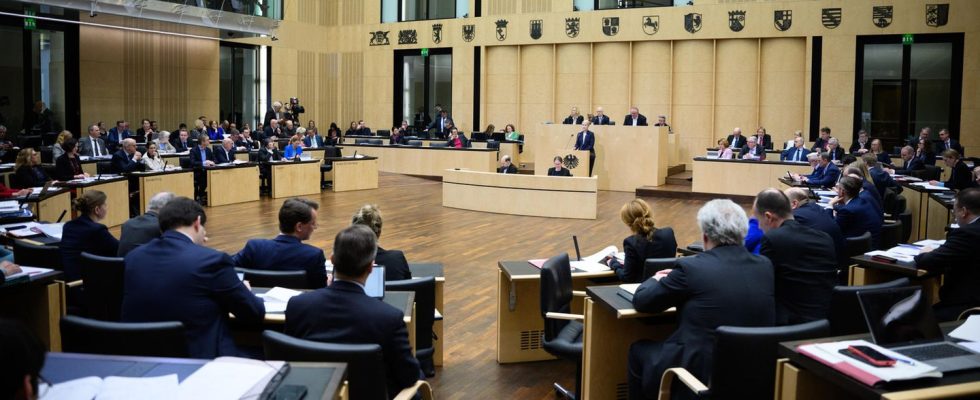For April 1st
Federal Council clears the way for cannabis legalization – despite harsh criticism
The Federal Council has cleared the way for the legalization of cannabis
© Bernd von Jutrczenka / DPA
The controversial limited release of cannabis has cleared the final hurdle – and legal smoking for adults is getting closer. However, the first improvements are already in sight.
The turning point in drug policy can come into force in a few days on Easter Monday. The law must first be officially announced once Federal President Frank-Walter Steinmeier has signed it. It should generally be legal for adults aged 18 and over to possess up to 25 grams of cannabis for personal consumption. Three live cannabis plants should be allowed in your own apartment and up to 50 grams of cannabis for personal consumption. Smoking weed in public spaces should be banned, among other things, in schools, sports facilities and within sight of them – specifically within 100 meters of the entrance as the crow flies.
Several countries are warning against legalizing cannabis
Before the vote, Federal Health Minister Karl Lauterbach (SPD) promoted the law, which was an opportunity to protect the young generation in particular from consumption and the black market through decriminalization and better education. Speakers from several countries, however, warned against legalization. Bavaria’s Health Minister Judith Gerlach (CSU) called the law an aberration. It also presents the states with massive additional administrative and enforcement costs.
Saxony’s Prime Minister Michael Kretschmer (CDU) said the law could not be about party politics. This question is so central and so personal, “that it was clear to me that I would not agree to the legalization of drugs under any circumstances, even if it caused trouble in my Saxon coalition.” Deputy Prime Minister Martin Dulig (SPD) expressed his opposition to calling the mediation committee. Saxony then voted inconsistently in the vote and the vote was therefore declared invalid.
The law also allows non-commercial “cultivation associations” for adults in which up to 500 members residing in the country grow cannabis together and sell it to each other for their own consumption – a maximum of 50 grams per member per month. No later than 18 months after the law comes into force, an initial assessment should be presented on how it affects the protection of children and young people.
Cannabis legalization
The Bubatz Cabinet: These ministers have smoked weed before
It was uncertain that the law would come into force on April 1st
It was uncertain until shortly before the meeting that the law would clear the final hurdle. Three committees of the state chamber recommended calling the mediation committee. The leading health committee proposed postponing the entry into force of the regulation until October 1st. The federal government had taken on board some points of criticism in order to avert a mediation process. In a statement that will be recorded in the Federal Council, she promised more support for education and prevention, especially for children and young people, as well as more flexible implementation rules. To achieve this, some subsequent changes to the law are to be implemented before July 1st.
Note: This article has been updated.

